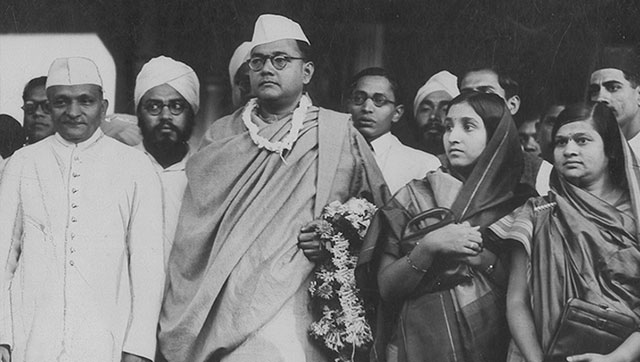
Shortly after its take off from a military base in Taihoku, present day Taipei in Taiwan, the ill-fated military aircraft carrying Netaji Subhas Chandra Bose, crashed and the iconic figure reportedly suffered third-degree burns. He was rushed to nearby Nanmon Military Hospital by his aide-de-camp (ADC) Colonel Habibur Rehman Khan, and was treated for burns but soon he slipped into coma.
Netaji died around 8 PM on the same day as per hospital sources though some reports said Netaji breathed his last at 11 PM on Aug. 18, 1945, 75 years ago. But his motherland India has refused to believe the news even to this day and refused to accept his last remains kept at a temple in Tokyo.
Keeping aside the controversy over his death, Colonel Habibur Rehman, who lived in Pakistan later and testified before the 1956 Netaji Inquiry Committee headed by Major General Shah Nawaz Khan, recollected Netaji's last words (Translated from Hindi) before his death:
"I have fought to the last (minute) for India's independence and now am giving my life in the same attempt. Countrymen! Continue the fight for independence. Before long India will be free. Long Live Azad Hind."
While the British intelligence wing was among the first to probe and confirm the plane crash theory, it was corroborated a year later by Harin Shah, a journalist with Mumbai's Free Press Journal, who visited Taipei and recorded the accident and the eventual death of Netaji.
There is little to prove that Netaji had escaped the plane crash and reached his destination Manchuria. His last words to the Japanese doctor who treated him were: "I feel as if blood is rushing to my head. I would like to sleep a while," reveal the archives collected by Ashis Ray of Bosefiles.info.
Bose family members and many academics have refuted the plane crash theory for long, though two commissions of enquiry proved substantially that Netaji did succumb to his burns in the plane crash on August 18, 1945. However, the third commission early this century held the view that there was no written record of Netaji being killed in the plane crash, ignoring the time-tested secrecy maintained in military records.
Though the recent row over a French secret report was a last-ditch attempt to keep the controversy alive, it is time India decided to bring Netaji's ashes back home as per his daughter's wishes. Kept at Renkoji Buddhist temple in Tokyo outskirts, the ashes are given annual ceremonial tribute on August 18 every year. Is this what Netaji deserved?









